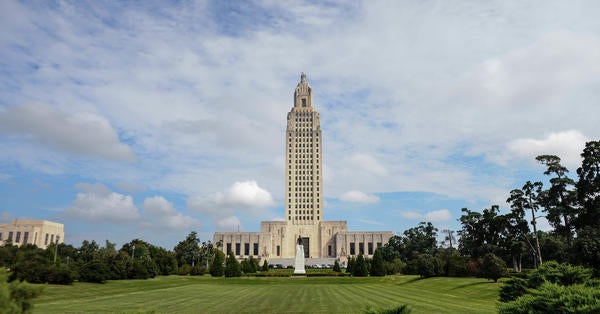Remembering P.B.S Pinchback: Louisiana’s first black governor
Published 2:39 pm Thursday, December 17, 2020

December contains an important milestone in the history of Louisiana politics. On Dec. 9th 1872 Pinckney Benton Stewart “P.B.S” Pinchback became the first African-American Governor of Louisiana.
Born free to a white father and mulatto mother, Pinchback would become a prominent figure during the Civil War being one of the few commissioned African-American officers to serve in the Union Army.
He would lead several companies for the 1st Louisiana Native Guard, a regiment made up entirely of African-American soldiers.
Although he rose up to the rank of Captain, Pinchback was passed over for several promotions in favor of white officers. Growing tired of the prejudice he endured during his time in the military, Pinchback would eventually move to New Orleans where his political career began.
He became a rising star in the political scene during the Reconstruction Era. Pinchback became a Louisiana State Senator in 1868 during a unique time in history when half of the State House of Representatives, and seven of 36 seats in the State Senate were held by people of African-American descent.
After becoming Senate President pro tempore, Pinchback succeeded Oscar Dunn as Lieutenant Governor after Dunn passed away. However, his term as Governor would be born of partisan scandal and political controversy.
In 1872, Governor Henry Clay Warmoth had impeachment charges brought against him due to disputes over certifying returns of the disputed gubernatorial election, in which both Democrat John McEnery and Republican William Kellogg claimed victory.
While the impeachment hearing was taking place, Warmoth had to step down as Governor. Pinchback would swear the oath of office and become the Governor of Louisiana in the interim. He served for six weeks from December of 1872 until January 13 1873.
When impeachment charges were dropped against Warmoth, Democrat John McEnery was sworn in as Governor of Louisiana.
Pinchback would remain active in politics and public service throughout his life. Notably he joined the Comité des Citoyens (Citizens' Committee) that led to the historic civil rights case Plessey vs. Ferguson in 1896.
Pinchback would spend the remainder of his life living in Washington D.C. where he lived in a large mansion. When he died in 1923 his body was laid to rest in Metairie Cemetery in New Orleans.
This article originally appeared on Leesville Daily Leader: Remembering P.B.S Pinchback: Louisiana’s first black governor





